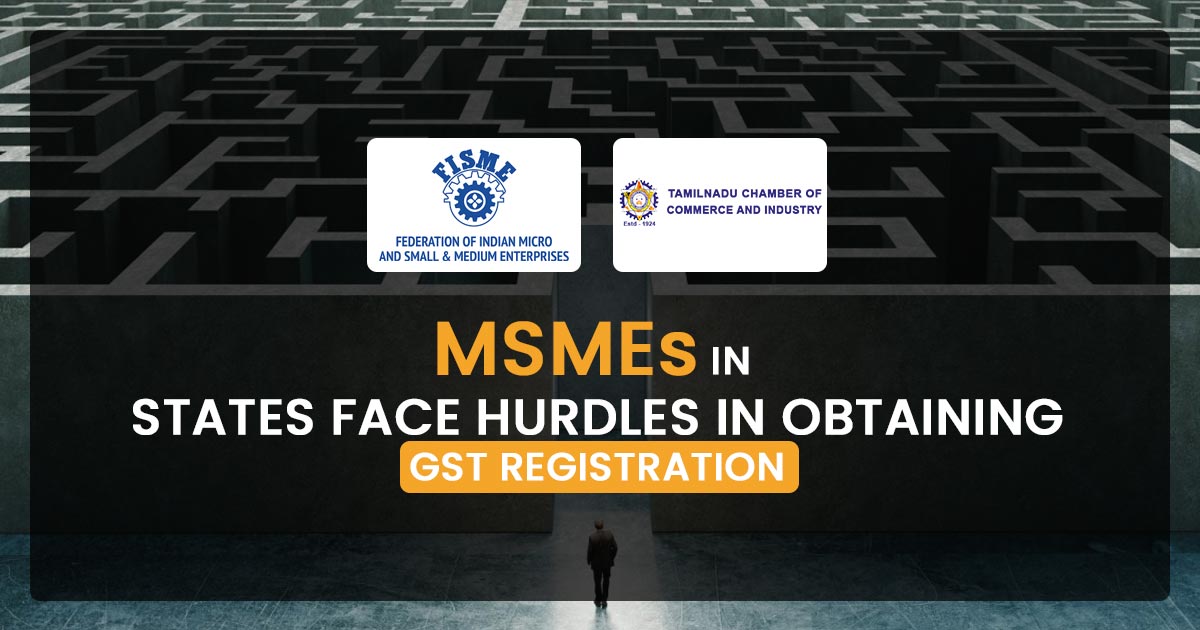
In getting licenses in the Goods and Services Tax (GST ) regime, the Federation of Indian Micro and Small & Medium Enterprises (FISME) and Tamil Nadu Chamber of Commerce show the issues faced by online micro, small and medium enterprises (MSMEs) and sellers in Tamil Nadu
The industry body in a statement quoted that in getting the GST registration numerous MSMEs in the state are facing hindrances. Bureaucratic inefficiencies and uncompromising, often misinterpreted, prerequisites from state authorities emerge as challenges for sellers. It includes extreme scrutiny concerning shared business spaces, the need for constant workstation presence, and the obligation to justify Tamil Nadu as their primary state of registration.
Read Also: Online Sellers Facing Scrutiny and Disproportionate Requests During GST Registration
It cited that Tamil Nadu is the country’s largest number of MSMEs with an 8% share amounting to 5 million enterprises. Online sellers over license cancellations raise concerns amid requirements for physical presence, adding that there is a noteworthy gap between GST procedures and their practical undertaking by authorities, directing to challenges for legitimate sellers.
We have suffered from repeated refusals restricting our ability to serve the region, even after our sincere efforts to receive the GST registration in Tamil Nadu. The challenge has risen as of the short notice and our inability to the physically present. It is not good to learn that India aims to promote MSMEs, however barriers continue.
Anil Bhardwaj, Secretary General, Federation of Indian Micro and Small & Medium Enterprises (FISME) quoted that while GST was anticipated to draw clarity and simplicity, challenges continue, specifically for emerging business models like e-commerce. It is important to have clear and concise guidelines along with the emerging awareness among GST officers.
To find the common basis consequential dialogue between MSME bodies and the GST department is essential. It is important to underscore that the solution is not in avoiding the tax but in easing the process for simpler compliance. Businesses shall experience more manageable compliance on easing the process.